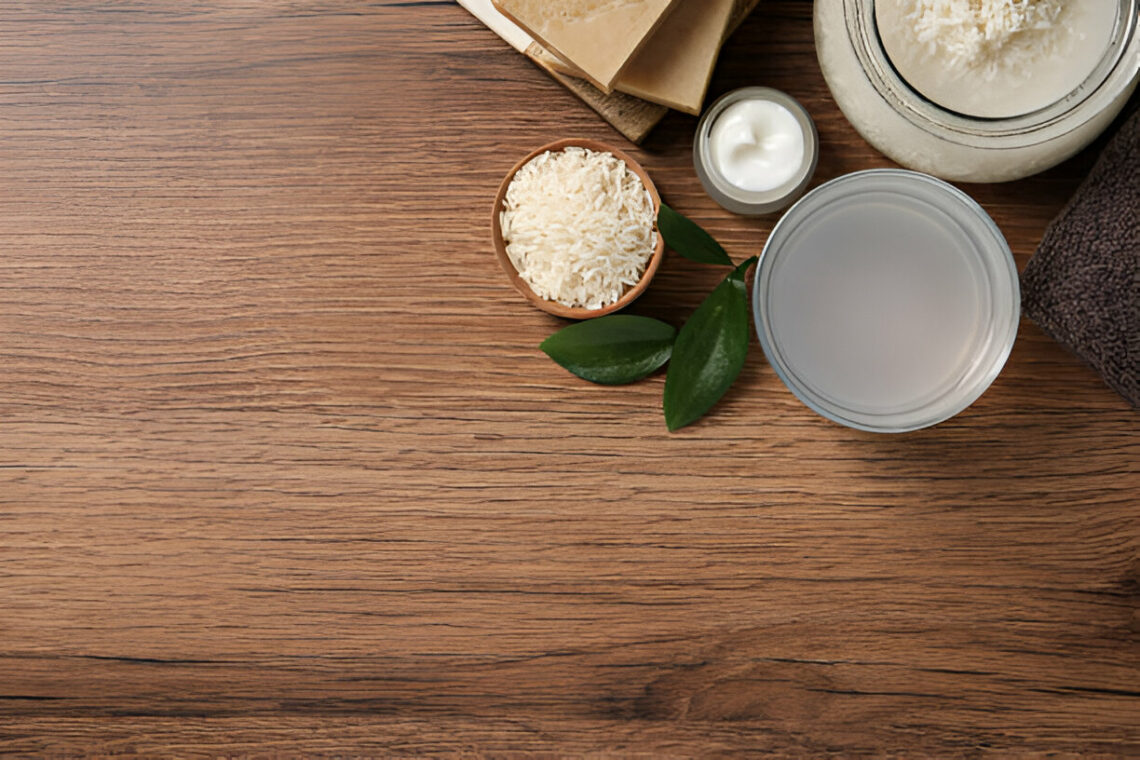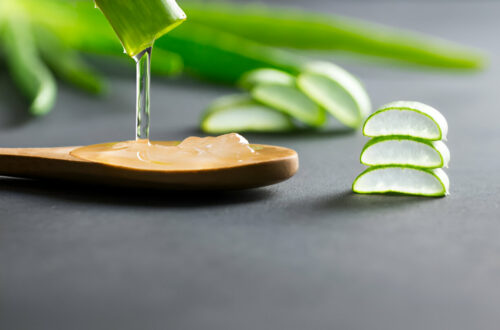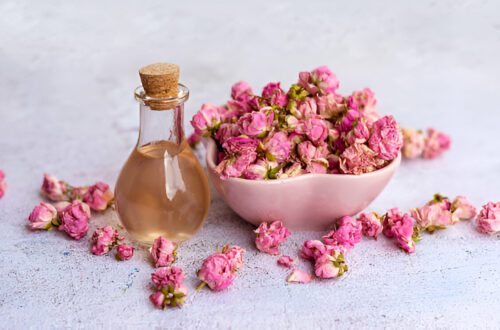Rice water, the liquid left after cooking rice, has been used for over 1,000 years to promote healthier and more beautiful hair, with its origins tracing back to Japan.
Nowadays, rice water is also becoming popular for skin care, along with other natural options like herbs for skin care. It is believed to soothe, tone, and improve various skin conditions. Plus, it’s easy and inexpensive to make at home.
Rice water contains compounds that may help protect and repair your skin. While it has some proven benefits, many of its claims are not yet fully supported by science.
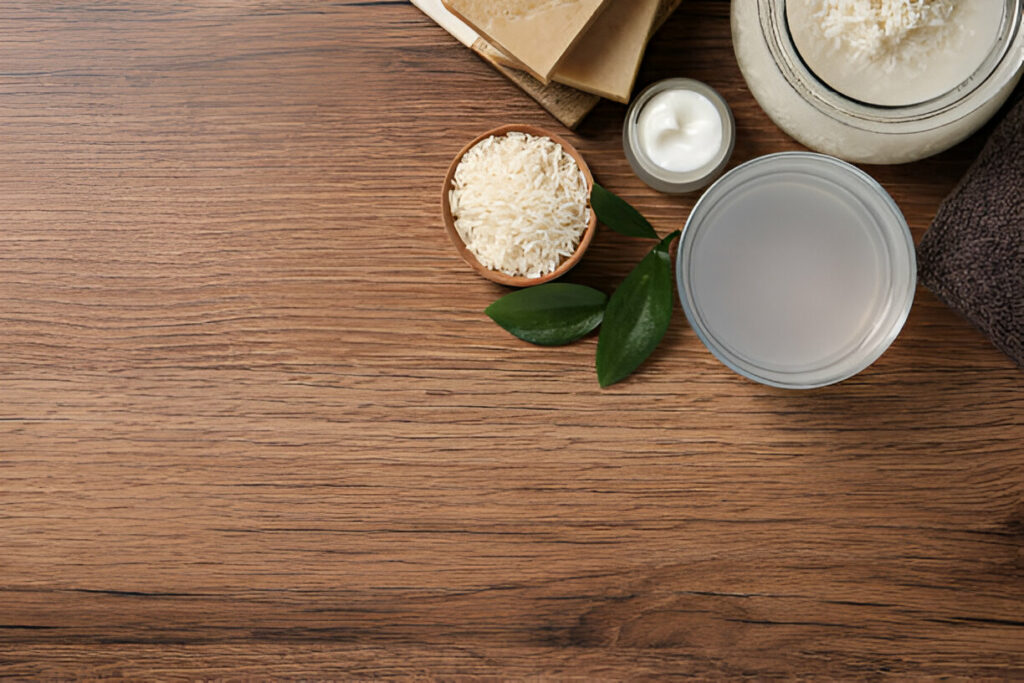
Rice Water Benefits for Skin
Rice Water for Skin Lightening
Rice water is often recommended for lightening skin and reducing dark spots. Many commercial products, such as soaps, toners, and creams, include rice water.
Some people believe rice water can lighten skin, as certain compounds in it are known to affect pigmentation.
Rice Water for the Face
A 2013 study found that rice wine (fermented rice water) can help repair sun-damaged skin. It boosts collagen production, which keeps the skin firm and can help prevent wrinkles. Rice wine also seems to have natural sunscreen properties.
Other research supports the anti-aging benefits of fermented rice water due to its antioxidant content. Learn more about the antioxidant properties of rice here MDPI (Molecular Diversity Preservation International)
Dry Skin
Rice water may help soothe skin irritation caused by sodium lauryl sulfate (SLS), a common ingredient in personal care products. For additional soothing benefits, you might consider using rose water for face. Some people also find that sea moss in skin care can improve skin health. Many report that using rice water twice a day improves skin that has become dry and damaged from SLS.
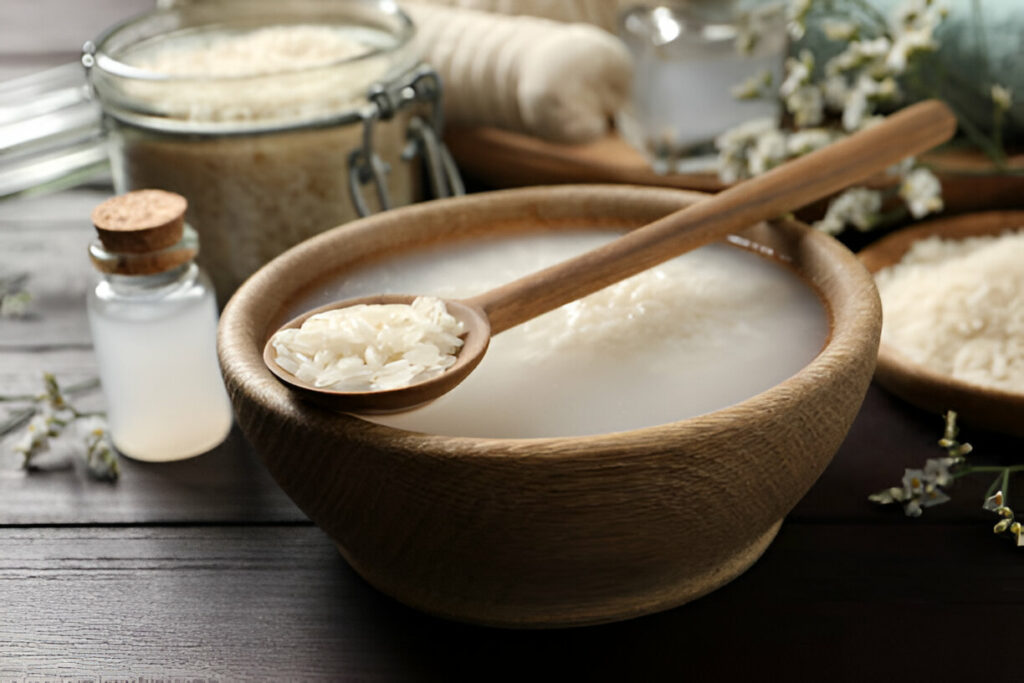
Eczema, Acne, Rashes, and Inflammation
Many people say that applying rice water to the skin can calm irritation, help clear up blemishes from conditions like eczema, and aid in healing. For similar soothing benefits, you might also explore lavender skin care. While rice water has properties that suggest it might help with these issues, there isn’t strong scientific proof yet to confirm these claims.
Free-Radical Protection
Rice water is rich in antioxidants that may help shield your skin from sun damage. Dr. Loretta Ciraldo, a board-certified dermatologist, notes that one study found rice water could block free radical formation from UV exposure. For additional protective benefits, you might also consider rose skin care. Another study showed it could act as a sunscreen when combined with other plant extracts. However, dermatologists advise using mineral SPF for full protection against environmental stressors and UV rays.
Anti-Aging Properties
Rice water may help fight signs of aging by blocking elastase, an enzyme that breaks down elastic fibers and causes wrinkles and sagging, according to Dr. Loretta Ciraldo. For similar anti-aging benefits, you might also explore aloe vera skin care. More research is needed to fully understand how effective rice water is for anti-aging.
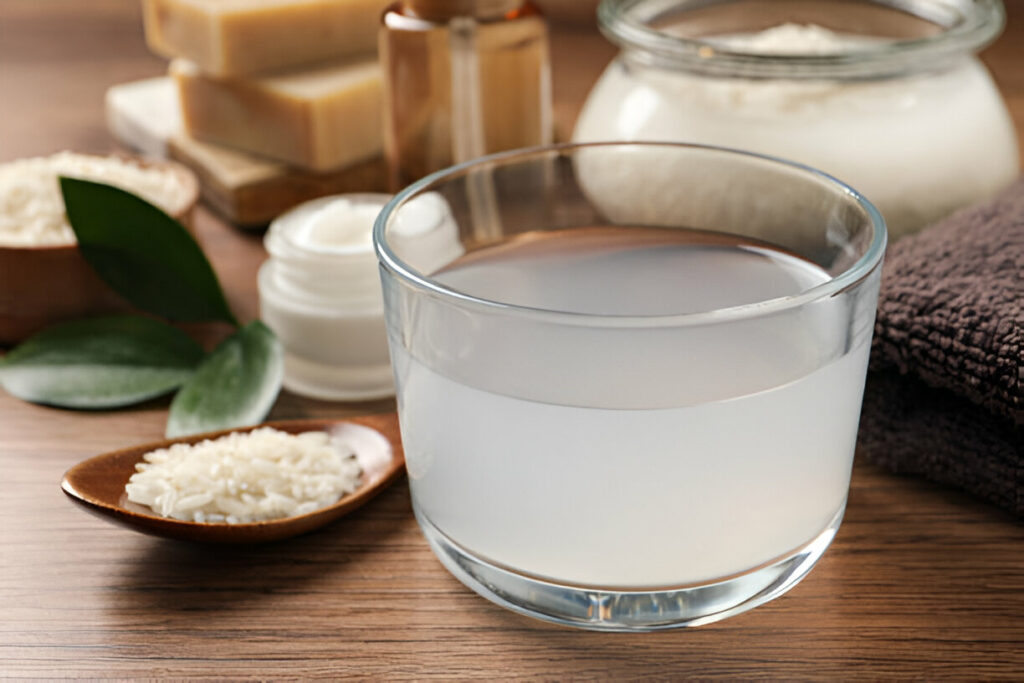
Potential Side Effects
If you’re not allergic to rice, rice water is generally safe for your skin. However, if you have very dry or dehydrated skin, it might make your skin drier. Some people might find rice water leaves a sticky feeling. To avoid this, use it sparingly and let it dry completely before applying other products.
How to use rice water on face
To use rice water on your face, first rinse the rice thoroughly. You can prepare rice water in a few different ways, but the type of rice you use doesn’t usually matter.
To make rice water by boiling:
- Rinse the rice well and drain it.
- Add about four times as much water as rice.
- Stir the rice and water together and bring to a boil.
- Remove from heat.
- Press the rice with a spoon to release the beneficial chemicals.
- Strain out the rice with a sieve.
- Store the water in an airtight container in the refrigerator for up to a week.
- Dilute with plain water before using.
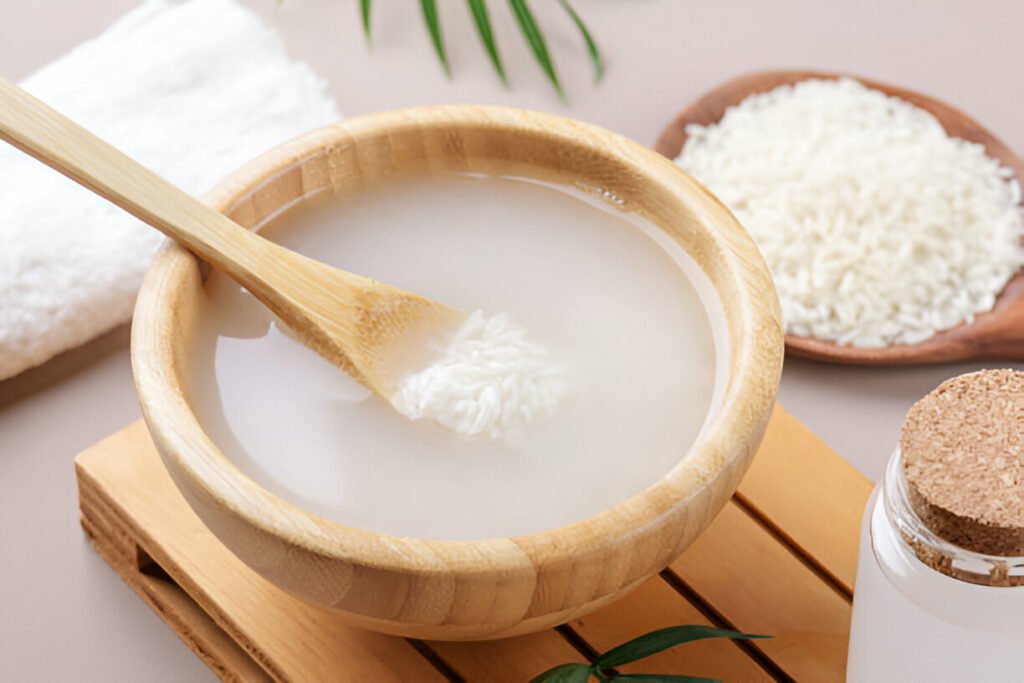
To make rice water by soaking:
- Rinse the rice well and drain it.
- Soak the rice in water for at least 30 minutes.
- Press the rice to release the beneficial chemicals.
- Strain the rice through a sieve.
- Store the rice water in the refrigerator.
To make fermented rice water:
- Rinse the rice and soak it in water as usual.
- After soaking, strain out the rice and leave the water in a jar at room temperature for 1-2 days.
- When the water starts to smell sour, move it to the refrigerator.
- Dilute with plain water before use.
Uses for rice water:
- Apply rice water directly to your skin or hair.
- You can add fragrances or other natural ingredients if you like.
- Be sure to dilute it with plain water if it was boiled or fermented.
If you make rice water yourself, you need to prepare fresh batches regularly to prevent spoilage.
